1. California
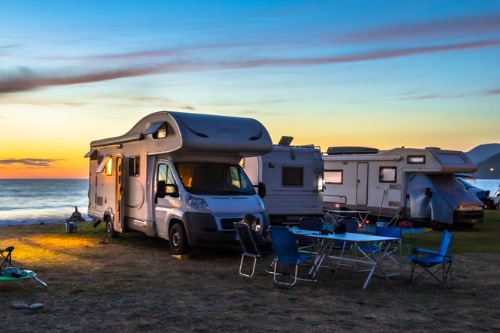
California has become notorious among RV owners for its tight parking rules. Cities like Los Angeles and San Francisco limit how long large vehicles can stay on city streets, usually just a couple of hours. The restrictions are meant to reduce street congestion and keep neighborhoods tidy. For RV travelers, it often means planning overnight stops well in advance.
Many public parking areas now ban sleeping in vehicles outright. Campgrounds and private RV parks are the only reliable options for a safe overnight stay. Some RVers try free parking in commercial lots, but liability concerns make that risky. The result is that casual overnight parking has become almost impossible in major cities.
2. Florida
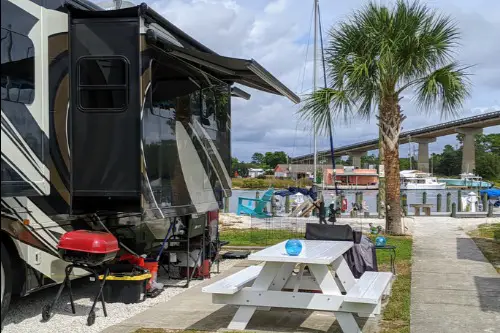
Florida has cracked down on overnight parking on public property. Sleeping in your RV at rest stops or beaches is frequently prohibited by law. Local municipalities often enforce hefty fines for anyone caught breaking these rules. This is part of a broader effort to reduce litter and improve safety in popular tourist areas.
Even private lots can be tricky for RVers. Many businesses have policies against overnight stays due to liability and security issues. Campgrounds are available but often fill up quickly during peak seasons. That means planning ahead is essential for anyone trying to explore Florida without a formal reservation.
3. Colorado
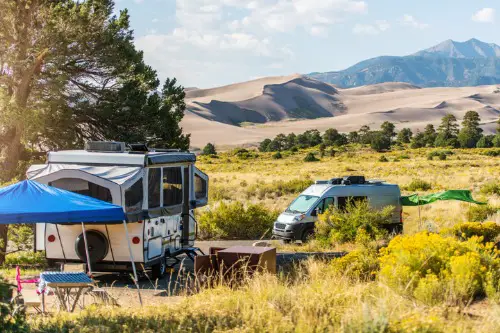
Colorado’s rest areas are off-limits for overnight parking. The state has strict rules to prevent camping in public rest stops, mainly to keep areas clean and prevent long-term use. For travelers, this requires careful route planning to avoid surprises. Without legal spots, RV owners must rely on private campgrounds along highways.
Some mountain towns have also limited street parking for oversized vehicles. Snow removal and narrow streets make long-term parking dangerous. Many RVers report needing to drive extra miles to find legal overnight options. Colorado’s scenic landscapes are worth it, but the state demands a bit of strategy.
4. Hawaii
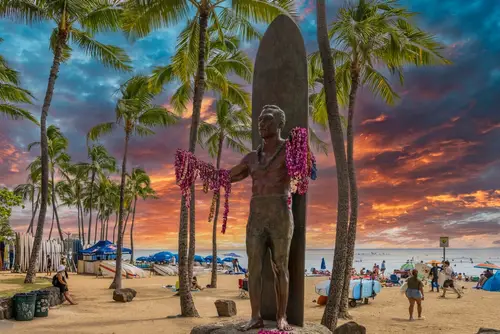
Hawaii makes overnight RV parking a real challenge due to limited public space. Rest areas are almost nonexistent, and roadside pullouts are meant for short stops, not sleeping. A state law prohibits sleeping in vehicles overnight on public property. For RV travelers, this often means paying for a campground or private lot just to rest safely.
Urban areas like Honolulu have added stricter parking rules to combat congestion. Many neighborhoods actively tow vehicles left overnight on streets. Tourists and locals alike are forced to find designated parking areas. As a result, spontaneous RV overnight stops are extremely limited.
5. Maryland
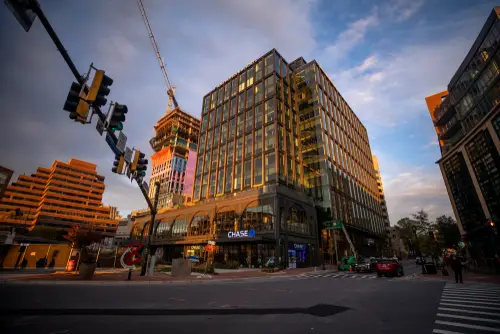
Maryland limits stays at rest areas to just three hours. This policy makes them unsuitable for overnight RV parking. The rule is designed to keep public spaces free for short-term travelers. Anyone ignoring it risks tickets or fines, making planning essential.
Private lots aren’t much easier, as many stores restrict overnight parking. Liability concerns are the main reason businesses enforce these rules. RV owners passing through have to scout campgrounds or RV parks in advance. It’s a state where convenience for spontaneous overnight stops is hard to find.
6. Nebraska
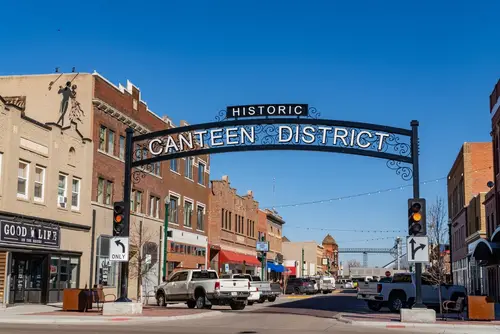
Nebraska restricts overnight parking at rest areas to a maximum of 10 hours. The law exists to ensure these facilities remain available for short-term travelers. Long-haul RVers have to find alternative spots, often paying for private campgrounds. Planning your route is crucial to avoid running out of legal options.
Some small towns also limit parking on main streets. This is partly to prevent congestion and maintain neighborhood safety. Many RVers report having to drive extra miles after dark to find a legal spot. Free overnight parking is rare, making advance preparation a must.
7. North Carolina
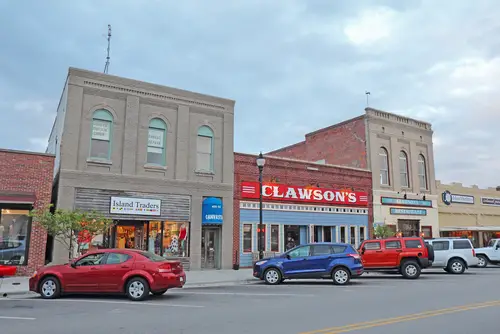
North Carolina enforces time limits on rest area stays, making overnight parking tricky. While it’s not a full ban, the restrictions discourage long-term camping in public spaces. Travelers must plan ahead and sometimes detour to nearby campgrounds. Ignoring the rules can result in fines or towing.
Some municipalities also have local ordinances against sleeping in vehicles. Coastal towns and tourist areas are particularly strict. RV owners often need to book spots weeks in advance during busy seasons. This ensures they can park legally without surprises.
8. South Carolina
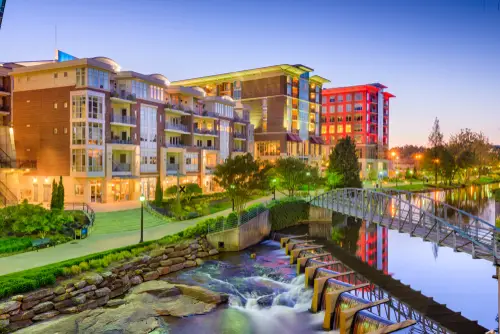
South Carolina rest areas and public parking zones have strict time limits. Extended overnight stays are not allowed, as the rules aim to prevent long-term camping. RVers passing through need to find private campgrounds for safe overnight stops. Failing to comply can lead to fines or being asked to leave.
In tourist-heavy areas, local enforcement is particularly vigilant. Business and public lots often prohibit overnight parking entirely. This leaves RV travelers with few free options for stopping. Planning and reservations are key to avoiding issues on the road.
9. Tennessee
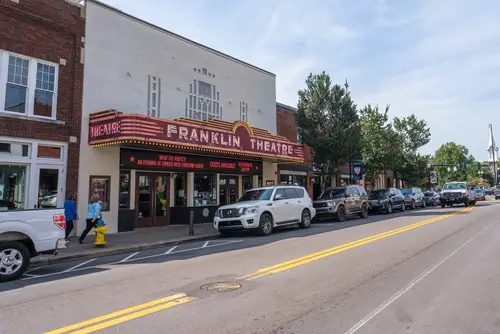
Tennessee restricts rest area stays to two hours, which effectively bans overnight parking. The state prioritizes short-term use to prevent congestion and maintain facilities. Long-distance RV travelers must find private campgrounds to rest overnight. Ignoring the limits can lead to fines or other penalties.
City streets are also challenging for RV parking. Many towns prohibit sleeping in vehicles overnight entirely. Parking lots and roadside options are rare, especially in urban areas. Careful route planning is essential to avoid breaking the law.
10. Virginia
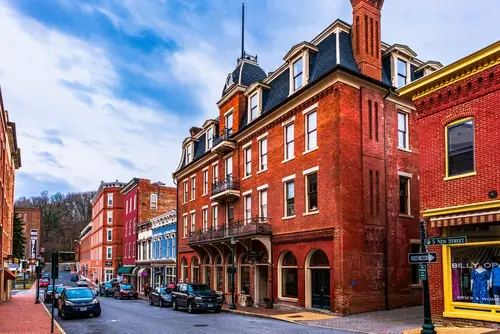
Virginia has strict time limits for rest areas, making overnight RV parking difficult. Most rest areas allow only short breaks for drivers, not full nights of rest. The goal is to keep facilities available for travelers passing through. Ignoring these rules can result in fines or being asked to leave.
Certain cities in Virginia also limit street parking for oversized vehicles. Residential neighborhoods enforce these rules to reduce congestion and safety issues. Many RVers report needing to drive extra miles to find legal parking. Planning overnight stops in advance is essential in the state.
11. New York

New York restricts overnight parking in rest areas and on many public streets. The state aims to prevent long-term camping and maintain clean, safe public spaces. RV travelers passing through need to find campgrounds or private lots. Ignoring the rules can result in tickets or towing.
Urban areas like New York City and Albany are particularly strict. Municipalities enforce no-sleeping ordinances to prevent overcrowding. Even some private lots restrict overnight stays due to liability concerns. For RV owners, careful planning is the only way to avoid problems.
12. Illinois
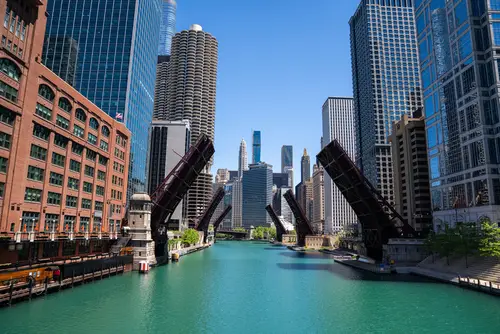
Illinois limits how long RVs can stay in rest areas, effectively preventing overnight use. The state wants rest areas free for short-term travelers and commercial drivers. RV owners need to seek private campgrounds for legitimate overnight parking. Failure to comply can lead to fines or warnings.
Cities like Chicago have additional restrictions on sleeping in vehicles. Local ordinances aim to prevent street congestion and maintain neighborhood safety. Public lots and parks are usually off-limits for overnight stays. Advanced planning is critical for RVers passing through Illinois.
13. Ohio

Ohio restricts overnight parking at rest areas to ensure public spaces stay available for short-term travelers. This makes it difficult for RV owners who want a free spot to rest. Campgrounds and private RV parks are the safest options for overnight stays. Ignoring the rules can result in fines or towing.
Many Ohio towns also have strict street parking ordinances. Sleeping in your vehicle on city streets is often illegal. RVers must plan their routes carefully to avoid enforcement zones. The state’s policies reflect a growing trend of limiting free overnight parking nationwide.
14. Texas
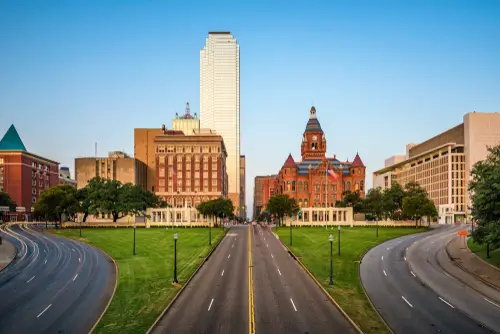
Texas limits how long RVs can stay in rest areas, making free overnight stops impractical. The state enforces these rules to maintain safety and turnover in public areas. RV travelers often need to rely on campgrounds or private lots. Failure to comply can result in fines or forced relocation.
Urban and suburban areas in Texas have additional restrictions. Many cities prohibit sleeping in vehicles on streets or public lots. RV owners must scout legal overnight options ahead of time. Planning and reservations are essential for anyone traveling through the state.
This post 14 States Making It Harder for RV Owners to Park Overnight Without Paying was first published on Greenhouse Black.
